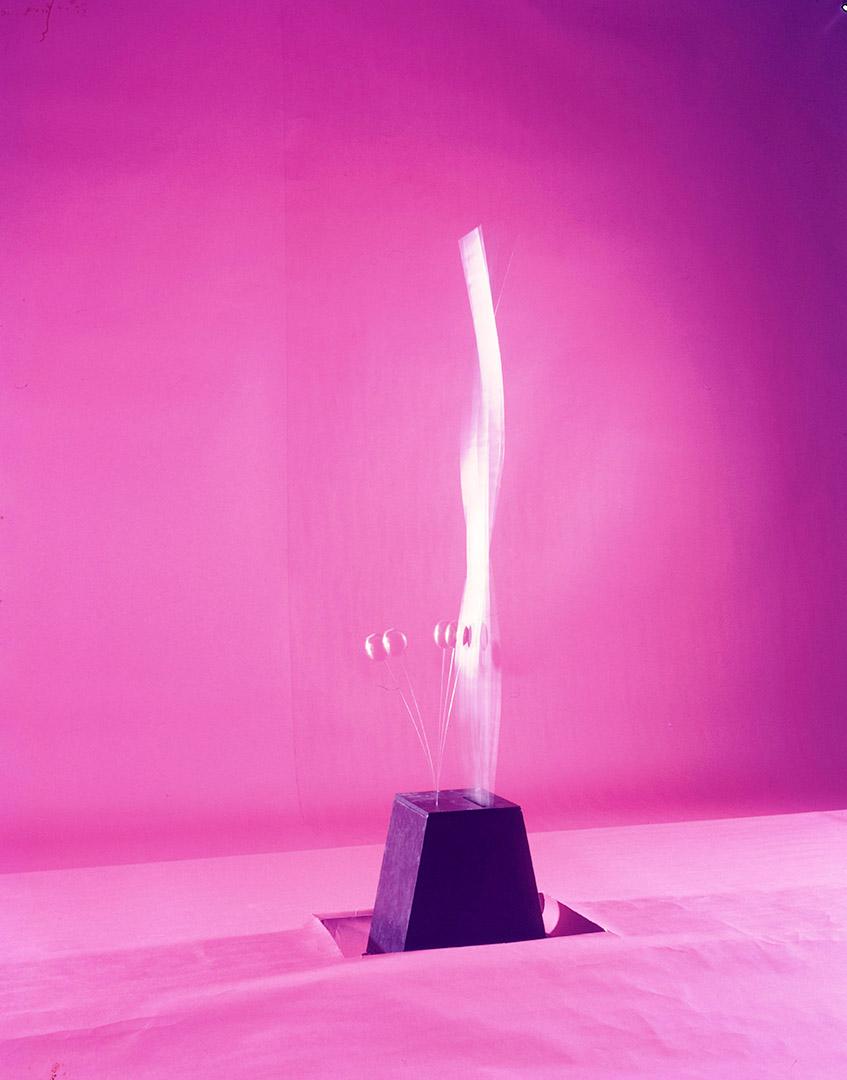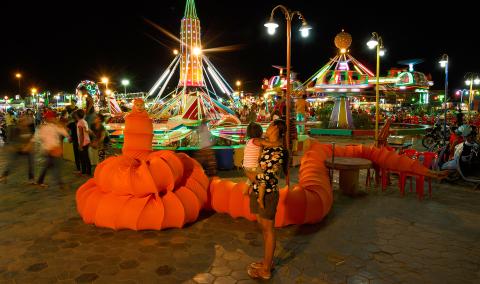Len Lye
APT8
1901–80, New Plymouth, Aotearoa New Zealand
Lived in London, UK, and New York, USA
Len Lye is a senior figure in the history of international kinetic art and experimental film. Exploring movement and the ways in which it can generate a bodily response in the viewer, Lye was interested in overturning classical hierarchies that privilege mind over body. His first experimental film Tusalava 1929 depicts the symbiotic development and communion of two cellular forms, and was inspired by motifs from Indigenous Australian art. Tusalava is a Samoan word that has parallels with Lye's exploration of movement and light, describing a process of 'everything going full circle'. The film took two years to complete, with each frame painted and individually shot. APT8 features Tusalava, at times screened on the original 16mm and accompanied by a new, specially commissioned musical response. Lye's sculpture Blade 1959–78 similarly explores concepts of movement, attraction and climax.

Len Lye / Aotearoa New Zealand 1901–80 / Blade 1959 / Image courtesy: Len Lye Foundation / Collection: Govett-Brewster Art Gallery, Len Lye Centre, New Plymouth
